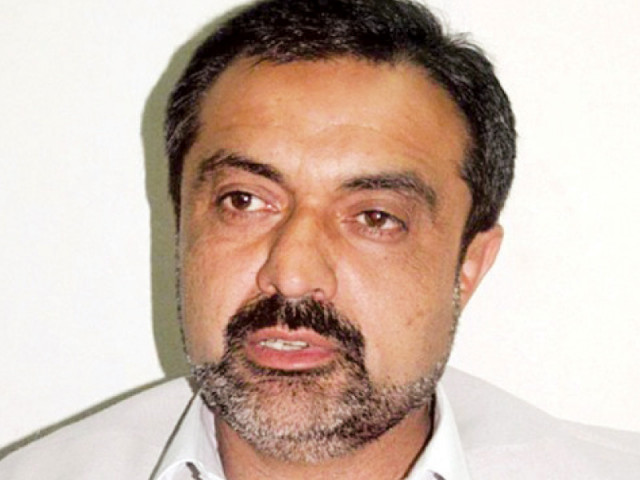Casting doubts: FATA sceptic of judicial APAs in tribal areas
While many hail the governor’s appointments, others see it as a plot to eliminate the tribal belt’s jirga system.

File photo of K-P Governor Engineer Shaukatullah Khan. PHOTO: FILE
Politicians and officials from the tribal areas are divided over the governor’s decision to create the posts of judicial assistant political agents (APAs) to streamline the legal system of the Federally Administered Tribal Areas (Fata).
On October 14, Governor Shaukatullah Khan approved the creation of the APA judicial posts and the formation of a team of 10 to 20 levies officials in each tribal agency to acquire forensic training. The move is meant to provide swift resolution to problems.
The governor had said a judicial APA would be appointed in every tehsil of all tribal agencies. The designated person will be independent in all his decisions.
Under this system, jirgas will continue to listen to and resolve people’s grievances and disputes, but the main authority to hand punishments would rest with the judicial APA.
However, a senior official from Fata told The Express Tribune there was a dire need for proper prosecution of cases and evidence gathering in the region, but the Frontier Crimes Regulation (FCR) is the biggest hindrance to the process as it arrives at a verdict through a jirga.
The official explained the FCR needs to be amended to make it compulsory for a jirga to consider the collected evidence before it passes a verdict.

He added the FCR does not include capital punishment even for crimes like murder. How will they (judicial APAs) enforce such punishments to people who have never been given such penalties?” he questioned.
“A lot of procedural changes are required too. It is also questionable whether the FATA Secretariat and political agents would let the new system be a success,” he said.
Iqbal Afridi, an elder and Pakistan Tehreek-e-Insaf central executive committee member, said all political parties have rejected the governor’s decision, labelling it a move to eliminate the jirga system from the tribal areas.
Afridi said the decision would have been acceptable if the government planned to appoint independent elected judges or officers, keeping the opinion of tribesmen into account.
Afridi insisted the residents of tribal areas already felt disconnected to political agents and APAs and it would be unfair to take away the jirga’s powers and give them to these officers.
Meanwhile, Fata Lawyers Forum (FLF) President Muhammad Ijaz Mohmand welcomed the appointment of judicial APAs and said “it is a historic step towards an independent judicial system in Fata”.
Mohmand said the FLF had forwarded a three-point agenda to Governor Shaukatullah which included the separation of judiciary from the executive, the extension of the jurisdiction of superior courts to Fata and an independent Fata tribunal.
He added the federal government had introduced some reforms in the FCR in 2011 whereby tribesmen were given the right to appeal in courts against any verdict. Minor changes were made to the FCR’s collective responsibility clause and the Auditor General of Pakistan was allowed to audit income and expenditure of political agents, but this did not bring any significant changes in the lives of tribesmen. However, Mohmand insisted the new system would yield better results.
Former MNA Akhunzada Chitan expressed reservations over the new system. He said the previous reforms to the FCR were never implemented and the ones being attempted now will see the same fate.
He stressed on the need for an implementing body, claiming the FATA Secretariat and agencies’ administrators do not want the judicial system in place.
Published in The Express Tribune, October 22nd, 2013.













COMMENTS
Comments are moderated and generally will be posted if they are on-topic and not abusive.
For more information, please see our Comments FAQ